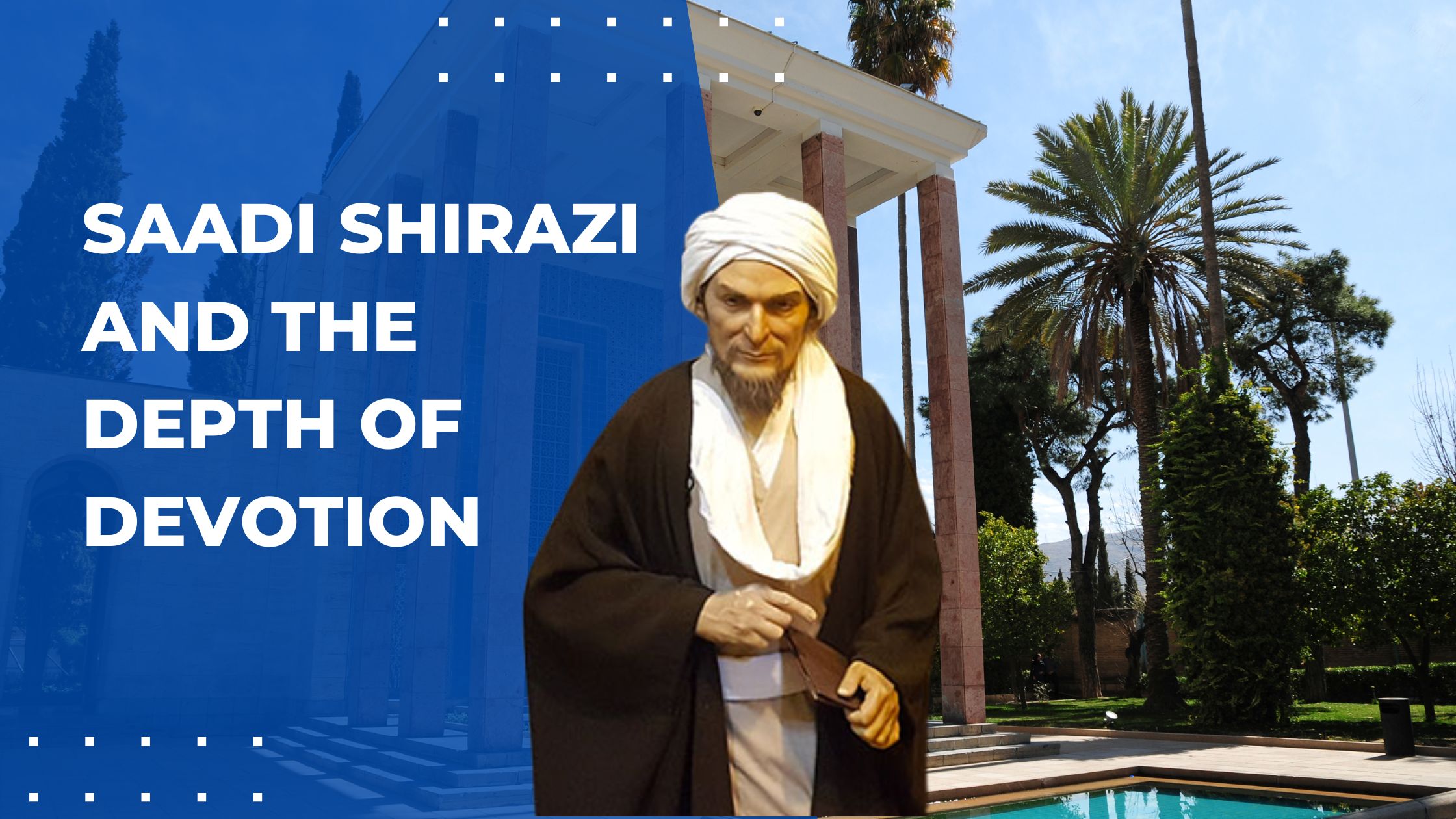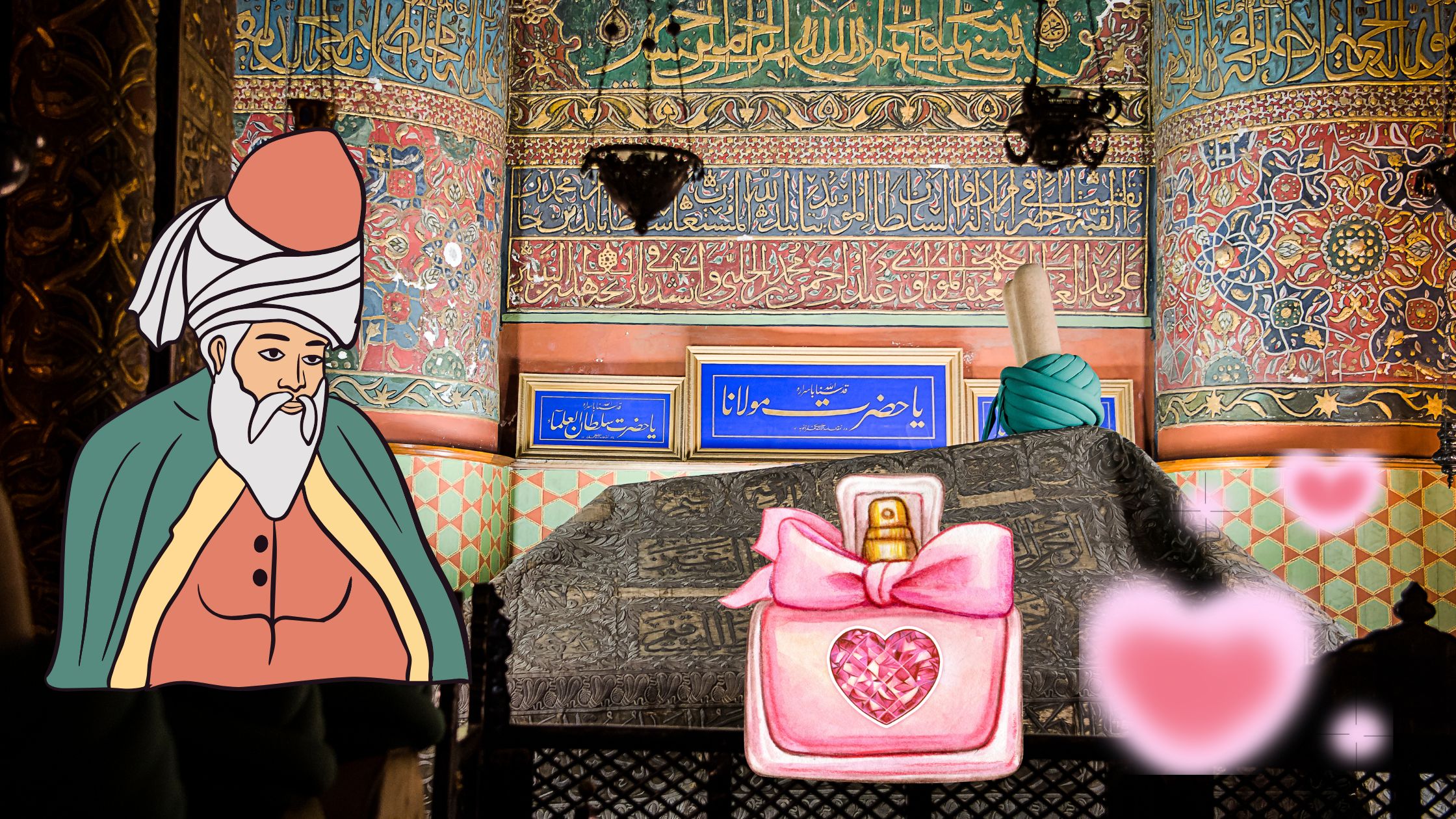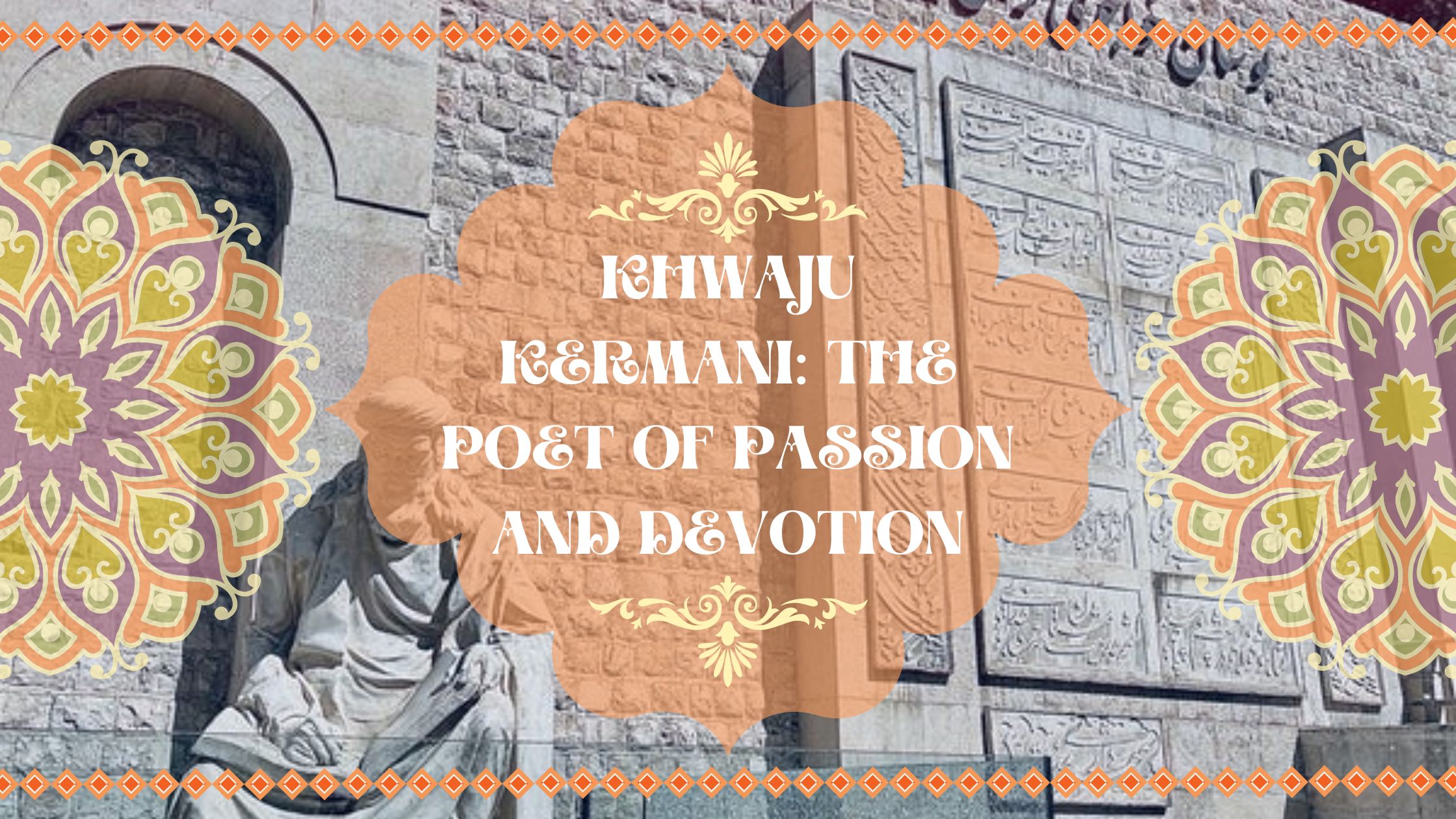Saadi Shirazi, one of the most celebrated poets of classical Persian literature, often explores the themes of love, devotion, and the divine through his elegant and melodious verses. This poem is a testament to the poet’s ability to merge the human and spiritual, blurring the lines between worldly affection and mystical longing.
Let’s dive into the layers of meaning within this poem and the profound sentiments it expresses.
Poem in Persian:
جان و تنم ای دوست فدای تن و جانت
مویی نفروشم به همه ملک جهانت
شیرینتر از این لب نشنیدم که سخن گفت
تو خود شکری یا عسلست آب دهانت
یک روز عنایت کن و تیری به من انداز
باشد که تفرج بکنم دست و کمانت
گر راه بگردانی و گر روی بپوشی
من مینگرم گوشه چشم نگرانت
بر سرو نباشد رخ چون ماه منیرت
بر ماه نباشد قد چون سرو روانت
آخر چه بلایی تو که در وصف نیایی
بسیار بگفتیم و نکردیم بیانت
هر کس که ملامت کند از عشق تو ما را
معذور بدارند چو بینند عیانت
حیفست چنین روی نگارین که بپوشی
سودی به مساکین رسد آخر چه زیانت
بازآی که در دیده بماندست خیالت
بنشین که به خاطر بگرفتست نشانت
بسیار نباشد دلی از دست بدادن
از جان رمقی دارم و هم برخی جانت
دشنام کرم کردی و گفتی و شنیدم
خرم تن سعدی که برآمد به زبانت
Translation of Saadi Shirazi’s Poem
O friend, my soul and body are devoted to your being,
Not for all the world’s wealth would I trade a strand of your being.
Sweeter than these lips, no speech have I heard,
Are you sugar itself, or is honey in your words?
One day, show mercy and let loose an arrow my way,
So I may marvel at your hand and bow at play.
If you turn away or hide your face from my sight,
I still watch the corner of your glance, so bright.
No cypress tree could rival your radiant moon-like face,
No moon could match the grace of your cypress-like pace.
What manner of wonder are you, beyond description's scope?
Much have we spoken, yet your essence we cannot evoke.
Whoever blames me for loving you, let them see you once—
Then they’ll excuse me when your beauty they confront.
It’s a shame to hide such a luminous visage,
What loss to you if the needy gain from your visage?
Come back, for your vision lingers in my eyes,
Sit near, for your mark rests deeply in my heart’s sighs.
Giving away one’s heart isn’t such a great price to pay,
I have but a breath of life left, and that, too, is yours today.
You offered reproach as a kindness, and I gladly heard,
Blessed is Saadi’s soul, for your words have stirred.
The Essence of Love and Devotion
Saadi begins by declaring that his soul and body are entirely devoted to the beloved. The imagery of sacrifice—offering up both body and soul—emphasizes the all-encompassing nature of true love. Saadi suggests that no material wealth, not even the entire world, can compare to a single strand of the beloved’s essence.
This opening sets the tone for the rest of the poem: a love that is selfless, boundless, and transcendent.
The Sweetness of Words and Glances
Saadi marvels at the beloved’s speech, comparing their words to sugar and honey. This sweetness is not merely physical but symbolic of the divine beauty reflected in the beloved’s every gesture and utterance.
Even the act of glancing—a fleeting, subtle movement—becomes a focal point for Saadi’s admiration. The poet’s unwavering gaze towards the beloved’s “corner of the eye” reflects the depth of his devotion and his ability to find beauty in the smallest details.
The Beloved’s Physical and Spiritual Beauty
In Persian poetry, the cypress tree and the moon are common metaphors for beauty. Saadi employs these symbols to elevate the beloved’s appearance beyond comparison. Yet, the poet subtly hints that such descriptions fail to fully capture the beloved’s essence:
“What manner of wonder are you, beyond description's scope?
Much have we spoken, yet your essence we cannot evoke.”
This line reveals the poet’s frustration and awe, as words fall short of encapsulating the divine qualities of the beloved.
Acceptance of Blame and Sacrifice
Saadi addresses those who may criticize his love, suggesting that anyone who sees the beloved would immediately understand and forgive him. This sentiment reflects the universal nature of beauty and love: it transcends judgment and unites all who witness it.
The poet also speaks of sacrifice, offering his very life as a small price for the beloved’s affection. Saadi’s humility and readiness to give up everything embody the ethos of Persian mystical poetry, where love is seen as a path to transcendence.
The Transformative Power of Love
Saadi concludes by accepting even the beloved’s reproach as a form of kindness. This demonstrates the transformative power of love: even pain and criticism become sources of joy when they come from the beloved.
The final line—“Blessed is Saadi’s soul, for your words have stirred”—shows the poet’s ultimate contentment, finding meaning and fulfillment in the mere acknowledgment of his love.
Reflections on Saadi’s Timeless Wisdom
This poem resonates on multiple levels, speaking to the human experience of love, longing, and sacrifice. Whether interpreted as a romantic ode or a spiritual meditation, Saadi’s words capture the essence of devotion:
- Love as Selflessness: Saadi’s willingness to sacrifice everything reflects the selfless nature of true love, where the beloved’s happiness outweighs personal gain.
- Beauty as a Divine Reflection: The beloved’s physical beauty serves as a metaphor for the divine, reminding us that earthly attractions can lead to spiritual awakening.
- Acceptance and Gratitude: Saadi’s embrace of reproach highlights the importance of gratitude and acceptance, even in the face of adversity.
Modern Applications of Saadi’s Teachings
- In Relationships: Saadi’s poem encourages us to value and cherish the unique qualities of our loved ones, finding beauty in their every word and action.
- In Spirituality: For those on a spiritual journey, Saadi’s words remind us to seek the divine in all things and to approach life with humility and devotion.
- In Creativity: Saadi’s use of vivid imagery and heartfelt expression inspires us to channel our emotions into art and storytelling.
Final Thoughts
Saadi Shirazi’s poetry remains timeless because it speaks to the universal truths of love and longing. This particular poem is a masterful exploration of devotion, blending human affection with divine aspiration.
What aspects of this poem resonate most with you? Have you experienced a love so profound that it transformed your perspective on life? Share your thoughts—I’d love to hear how Saadi’s wisdom touches your heart.
Let’s continue to celebrate the beauty of Persian poetry and its ability to connect us across time and space. Would you like to explore more works by Saadi, or dive into the poetry of another classical Persian poet?





